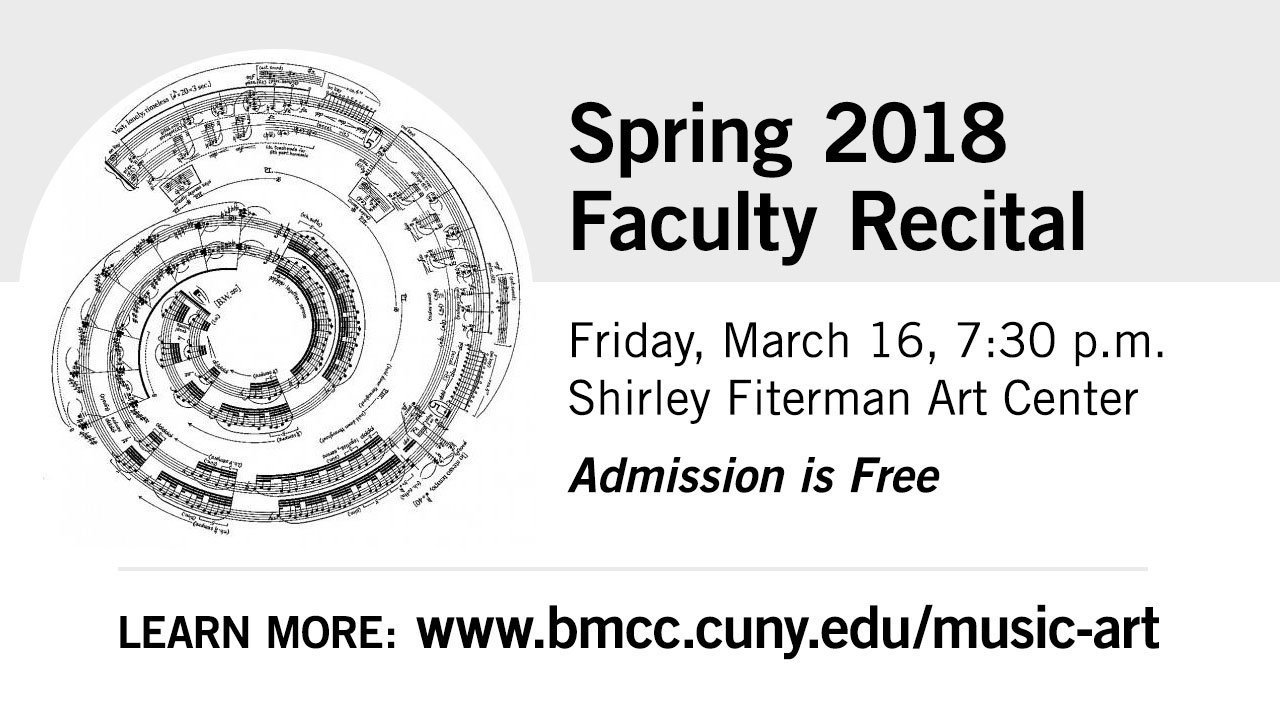
You may have heard the slow march of a piano, the high-pitched voice of a soprano and the sounds of a weeping violin escaping from BMCC’s Theatre 2 last week. But a symphony orchestra was not on campus, and a Beethoven piece was not being filtered through the sound system.
Instead, a group of four faculty members stood on the theatre’s sparse stage, filling a room of students with restructured compositions of folk songs and a series of classical works.
Who Were They?
Full-time professors Dr. Howard Meltzer (piano), Eugenia Oi Yan Yau (vocalist) and Joyce Solomon Moorman (piano) and part-time professor Ina Litera (viola) team up eight times a year performing for their students and others at BMCC for free. Two of their performances are done on campus; the other six occur at Beth Israel’s Louis Armstrong Center for Music and Medicine.
“Everyone in this department has performance backgrounds, but some of us knew each other already from things outside the school,” said Meltzer, who is deputy chair of the Music and Art Department. The group, which sometimes adds local cellist George Dewar to the mix, is in its second year performing together.
What They Played
The quartet began with four folk songs that have been restructured by Alan Smith to work as classical pieces.
“There’s actually a longstanding tradition of turning folk songs into classical compositions, and these are part of that whole tradition,” Meltzer said. “It starts out as a very simple straightforward string of folk songs, but it turns into a little bit of political commentary by the end. We hope the audience can pick that up.”
They likely did. The song the group closed the folk set with — “Oh Johnny,” also known as “Johnny I Hardly Knew Ye” — is a definitive anti-war song which dates to the early 1800s.
The musicians then moved into a series of reworked classical pieces, before finishing with original works by Richard Strauss, Elliott Carter and Maurice Ravel.
“Our current aesthetic favors authenticity. This is a belief that the original instrumentation specified by the composer is infinitely superior to any arrangement and represents the true conception of a particular work. In spite of this, composers and others continue to arrange works for different combinations of instruments,” according to Meltzer.
Meltzer said the group leaves it to the audience “to decide the case for or against arrangements and originals.”
Why They Do It
Most, if not all of the attendees at the first campus show were students, and that’s the intended audience, according to Meltzer.
“It’s sometimes hard to get students outside the school to see a concert, so this was our idea to get students involved,” Meltzer said. “We want to make classical music available to the students as much as we can and this is our way of doing that.”
The group’s concerts the Louis Armstrong Center are a little different. The principle mission of the Center is to provide state-of-the-art music therapy care to complement medical treatment for children, teens and adults with asthma and chronic obstructive pulmonary diseases.
Some students still come, Meltzer said, but more importantly, the group gets to help the sick.
“We try to do some community outreach with this,” he said.
Step Right Up and See the Show
The group next performs Nov. 9 at Beth Israel’s Louis Armstrong Center for Music and Medicine. The next on-campus recital is April 2, in Theatre 1, at 2:15 p.m. The show will include contemporary American works and pieces by faculty composers.

